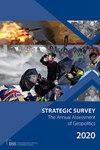Latin America
Q4 Social Sciences
引用次数: 0
Abstract
‘Latin’ America is a region constructed in a context of imperial rivalries and disputes about how to build ‘modern’ nations that made it an ‘other America’ distinct from ‘Anglo’ America. Bringing together people without previous historical contact, the diversity of its societies and cultures was increased by the transatlantic slave trade and later global immigration. Building on the constructive relationship that characterises the ties between socio-cultural anthropology and history in the region today, this entry discusses differences in colonial relations and cultural interaction between European, indigenous, and Afro-Latin American people in different countries and the role of anthropologists in nation-building projects that aimed to construct national identities around ‘mixing’. It shows how anthropologists came to emphasise the active role of subordinated social groups in making Latin America’s ‘new peoples’. Widespread agrarian conflicts and land reforms produced debates about the future of peasant farmers, but new forms of capitalist development, growing urbanisation, and counter-insurgency wars led to an era in which indigenous identities were reasserted and states shifted towards a multicultural politics that also fostered Afro-Latin American movements. Anthropology has enhanced understanding of the diversity, complexity, and contradictions of these processes. Latin American cities are characterised by stark social inequalities, but anthropologists critiqued the stigmatisation of the urban poor as ‘marginals’ and used their ethnographies to produce novel insights into the nature and determinants of urban violence and the role of criminal organisations. Other areas in which Latin American anthropology has been innovative are analyses of transnational relations and new social movements, including women’s movements and feminism, although issues of gender, religious transformations, and cultural mixing run through this entry’s entire discussion, which concludes with Latin American debates about the decolonisation of anthropology itself.拉丁美洲
“拉丁美洲”是一个建立在帝国竞争和如何建立“现代”国家的争端背景下的地区,这使它成为一个不同于“英美”的“其他美洲”。跨大西洋奴隶贸易和后来的全球移民增加了其社会和文化的多样性。基于当今该地区社会文化人类学和历史之间的建设性关系,本条目讨论了欧洲、土著、,以及不同国家的非裔拉丁美洲人,以及人类学家在旨在围绕“混合”构建国家身份的国家建设项目中的作用。它展示了人类学家如何开始强调从属社会群体在创造拉丁美洲“新民族”中的积极作用。广泛的土地冲突和土地改革引发了关于农民未来的辩论,但新形式的资本主义发展、日益增长的城市化和反叛乱战争导致了一个土著身份重新确立、国家转向多元文化政治的时代,这也促进了非裔拉丁美洲运动。人类学增强了对这些过程的多样性、复杂性和矛盾性的理解。拉丁美洲城市的特点是明显的社会不平等,但人类学家批评了将城市穷人污名化为“边缘人”的做法,并利用他们的民族志对城市暴力的性质和决定因素以及犯罪组织的作用产生了新的见解。拉丁美洲人类学创新的其他领域是对跨国关系和新社会运动的分析,包括妇女运动和女权主义,尽管性别、宗教转变和文化融合的问题贯穿了本条目的整个讨论,最终以拉丁美洲关于人类学本身非殖民化的辩论结束。
本文章由计算机程序翻译,如有差异,请以英文原文为准。
求助全文
约1分钟内获得全文
求助全文

 求助内容:
求助内容: 应助结果提醒方式:
应助结果提醒方式:


